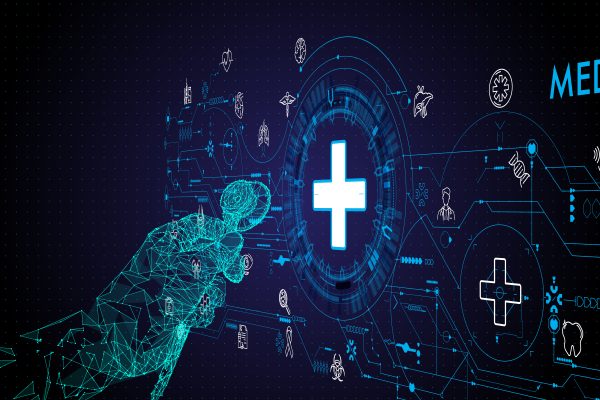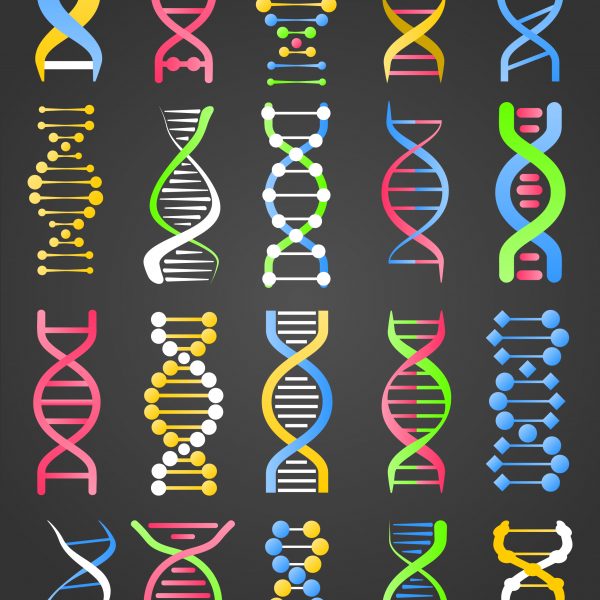
Few things have raised the profile of genetics in the general public like the advent of direct-to-consumer genetic tests such as those offered by 23andMe or ancestry.com. In a previous Shareable Science, we discussed what these tests can really tell us about our ancestry. However, direct-to-consumer genetic tests come in an ever-increasing variety of flavors. Some target potential health risks; others point to medications that might be more or less effective for an individual based on their genetics.
But why would direct-to-consumer genetic testing companies want your health data to go alongside the genetic data they collect from you?
23andMe is piloting a program asking for health information from people who take the company’s tests. Nebula offers rewards for filling out surveys that include health questions. LunaDNA offers shares to people who contribute genetic and health data, then pays dividends when that information is used in research.
So what gives? Let’s find out.
The Health Data Landscape
First off, it’s worth noting that the health information sector has drawn the attention of tech companies for years. Amazon recently partnered with Britain’s National Health Service (NHS) to offer health advice through its Alexa electronic assistant devices. However, the move has raised eyebrows, as many suspect Amazon may find a way to use the trove of health information it collects through the program. Apple already consolidates health information in its Health app. Apple’s service works in part by syncing with electronic health records (EHRs).
Neither of these offerings currently feature genetic information though. Direct-to-consumer genetics companies have the benefit of starting with some of the most sensitive and difficult to collect information—pieces of a patient’s genome. Collecting additional health information through surveys or even eventually adding EHR’s to their own databases could vault these companies and their offerings ahead of even the world’s largest tech giants.
One of the primary reasons companies have scrambled to find a way into the health information sector is because there’s immense value in the data, specifically for researchers, both academic and commercial.
 Researchers in both settings need enough individual data points to draw conclusions, which can sometimes require thousands of participants. The group they assemble is called a cohort.
Researchers in both settings need enough individual data points to draw conclusions, which can sometimes require thousands of participants. The group they assemble is called a cohort.
When assembling a cohort, you’re often looking for incredibly specific characteristics. For example, you might want to look at how genetic and environmental factors combine to contribute to a health problem. In that case, you need to find a representative yet diverse sample of individuals. The more robust the study, the more data points you need. Do you need to control for specific risky behaviors like smoking? What about specific ethnic backgrounds that seem to link to the likelihood of contracting the disease? All of the demands of creating a successful cohort make it incredibly challenging to recruit participants one-by-one.
Assembling troves of data on people gives private companies the potential to market these datasets to researchers.
The Broader Opportunities
Possessing pre-assembled datasets of scale creates a lot of potential in healthcare.
If, for example, 23andMe had a comprehensive database of people’s EHR’s matched with their genetic profiles, they might be able to quickly assemble an anonymized cohort that would otherwise take months or years to put together. Such an asset could facilitate quicker discovery of genetic predispositions, links between disease outcomes and genetics and even a faster, more complete understanding of potential treatments.
It could also help pave the way for what we call precision medicine. The idea of precision medicine is to create healthcare and treatment plans based on each individual. Already we know that some people respond better to certain medications based on their genetics. We can also detect a number of increased risks based on genes. Genetic sequencing can even help provide more accurate family history, especially in cases where people might have limited access to such information.
However, performing genetic sequencing remains a challenge for the medical field, as often the cost is prohibitive as a preventative measure. Opportunities to link genetic information to health information could eventually lead to a more tailored approach to personal medicine.
A New Data Privacy Conversation
This approach to health information as a commodity does come with a new set of vulnerabilities, especially in regards to privacy. For example, in the aforementioned LA Times story about Amazon’s Alexa offering health advice, Anita Cava, a University of Miami law professor notes medical privacy laws weren’t written to account for people willingly disclosing confidential medical information to private companies via voice assistants. From the article:
“[The Health Insurance Portability and Accountability Act of 1996 or] HIPAA doesn’t apply to Amazon in this situation,” she said. “Amazon has no relationship with Alexa users as a healthcare provider. The company theoretically could do almost anything with that information.”
The sensitivity of the data involved also raises questions about the security required to protect it. Take this report from Health Data Management:
DNA testing service Vitagene left thousands of client health reports exposed online for years.
More than 3,000 user files remained accessible to the public on Amazon Web Services cloud-computer servers until July 1, when Vitagene was notified of the issue and shut down external access to the sensitive personal information, according to documents obtained by Bloomberg.
The reports included customers’ full names alongside dates of birth and gene-based health information, such as their likelihood of developing certain medical conditions, a review of the documents showed.
Even if the information is dutifully secured, who should have access to it? Before the Affordable Care Act (also known as Obamacare), insurers could refuse to offer coverage to individuals with pre-existing conditions, like cancer or diabetes. That’s not legal currently, but the practice would be allowed under several of the replacement proposals that have been put forward. That in mind, insurers gaining access to not just what pre-existing conditions a patient has, but also which ones they might yet develop, could meaningfully hurt healthcare consumers.
The New Era
There’s a certain inevitability to genetics entering more and more mainstream conversations. Even whole genome sequencing is now relatively affordable. Whereas the first human genome cost over $3 billion dollars to sequence, we can now sequence an entire genome for less than $1,000. Targeted parts of the genome can be sequenced for far cheaper than that.
As genomic data reaches the masses, the privacy surrounding this data needs to be a focus of conversation. In many ways, it will define the next era of medicine.
To schedule a media interview with Dr. Neil Lamb or to invite him to speak at an event or conference, please contact Margetta Thomas by email at mthomas@hudsonalpha.org or by phone: Office (256) 327-0425 | Cell (256) 937-8210
Get the Latest Sharable Science Delivered Straight to Your Inbox!
[gravityform id=19 title=false description=false ajax=true][wprpw_display_layout id=8]




